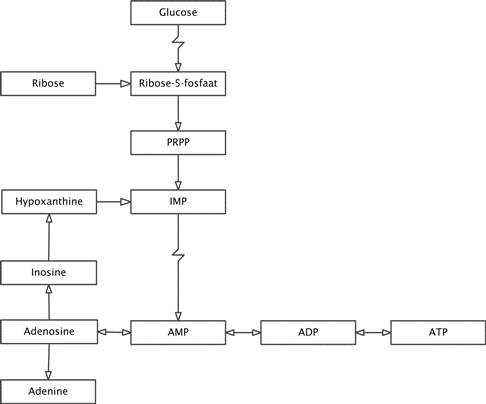Cort referenced this paper (
pdf) in
his write up of the recent Tomas Newton paper on cellular bioenergetics.
I'd never heard of it before. It's a computer simulation "
in silico" of what might be happening inside the cells if ATP levels are deficient.
I found this graph especially evocative: We are the red lines and it takes us an especially long time to recover from moderate exercise. (The trend in the model is even more extreme in me. I can recover from a 30 second burst in under 32 hours, but a repeated 1h exercise regime would probably be more than 60 hours to bounce back from).
(nb this is not experimental data. They set up their model to try to show what kinds of prior conditions would produce cfs-type PEM. If the outputs match reality more or less, we are encouraged to believe the prior conditions that form their assumptions may be correct.)
"
By simulating a reduced mitochondrial ATP synthesis rate for CFS patients the model leads to predictions about the duration of recovery after exertion and demonstrates that long moderate exercises are more exhaustive than short intensive exercises contrary to the results for healthy controls. Furthermore, it was shown that ATP reaches critically low concentrations during high intensity ex- ercise in CFS simulations and the acidification in muscle tissue increases compared to control simulations."
I'm increasingly taken by the idea of an ATP shortfall. I remain open-minded about how this might happen, whether it is mitochondrial, glycolytic or due to leakage.
Perhaps loss of ATP via purinergic signalling might be practically equivalent to reduced mitochondrial synthesis. Either way you end up with less ATP to use.
@corni what do you think about this?


